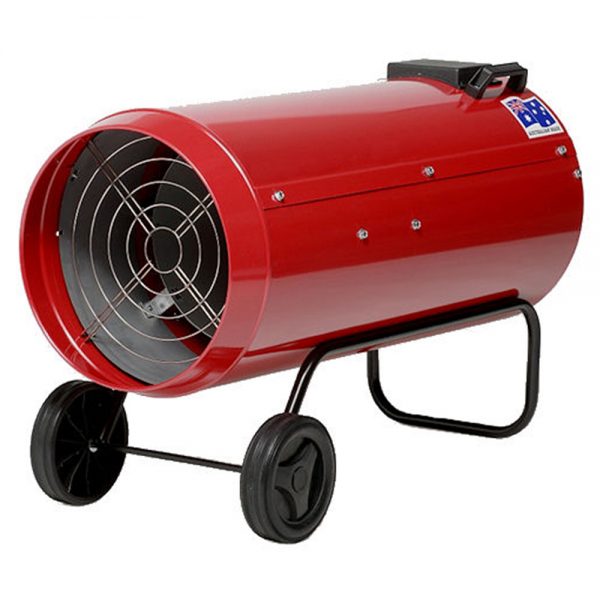Selecting the right heater for your home is essential for maintaining comfort while managing energy costs. Two popular options are oil heater vs electric heater. Both have their own sets of advantages and drawbacks. This article will compare oil heater vs electric heater solutions across various parameters, helping you make an efficient and informed choice.
Energy Efficiency
How Oil Heaters Work
Oil heaters use a heated oil reservoir to produce warmth. The heater warms the oil, which retains heat and radiates it gradually. This method results in consistent and long-lasting warmth even after the heater is turned off. Oil heaters are known for their energy efficiency because they provide heat without using continuous power.
An oil heater takes longer to warm up but maintains its heat better. This makes it suitable for prolonged periods of heating, offering steady warmth without consuming a lot of electricity in the long run.
How Electric Heaters Work
Electric heaters convert electrical energy into heat using resistive elements. These heaters offer almost instant warmth and are good for quick heating. However, they stop producing heat as soon as they are turned off. Electric heaters are less efficient in terms of energy usage for prolonged heating.
While electric heaters offer quick heating solutions, they consume more power to maintain warmth continuously. This makes them less efficient for long-term use, especially in larger spaces.
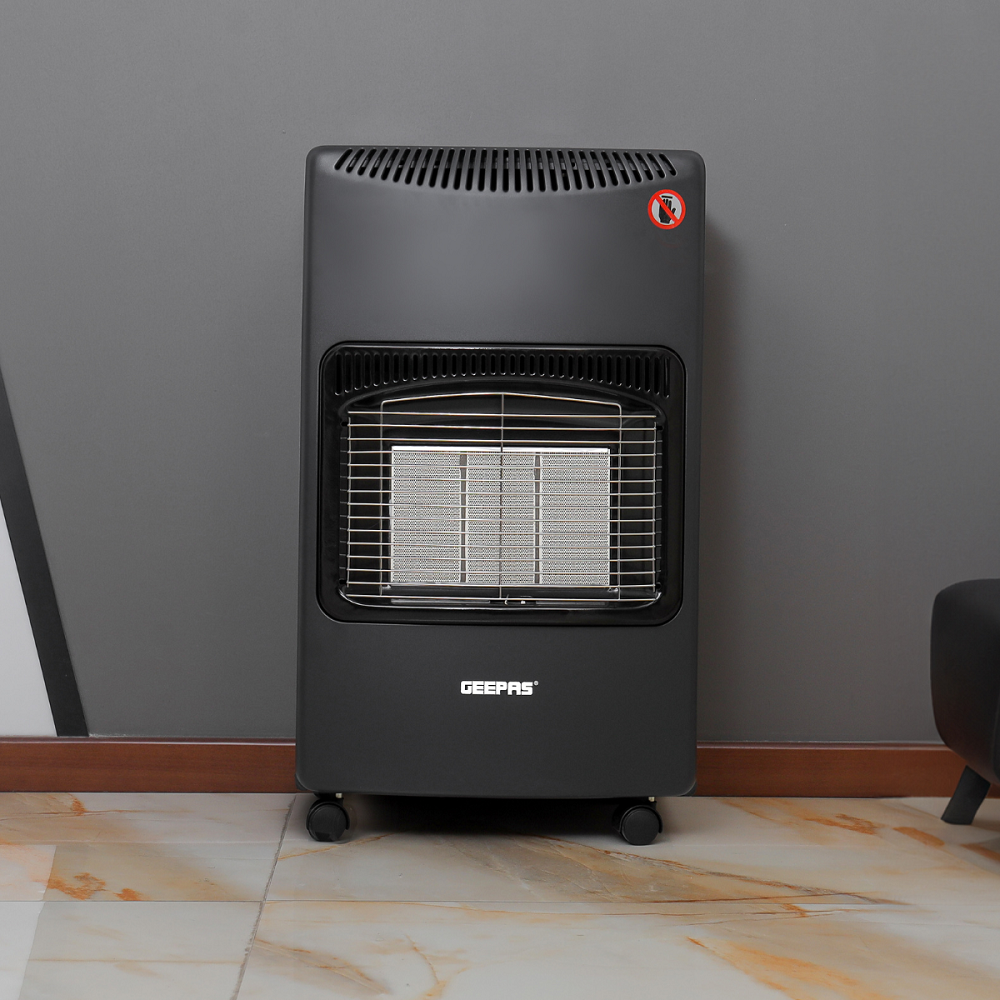
Installation and Maintenance
Setting Up Oil Heaters
Oil heaters are generally easy to install. They typically come with wheels, making them portable and convenient to move from room to room. Maintenance is minimal and usually involves occasional cleaning of the exterior.
One of the major advantages of oil heaters is that they don’t require any specialized installation, making them a plug-and-play option. This ease of use and low maintenance make oil heaters a hassle-free heating solution.
Installing Electric Heaters
Electric heaters come in a variety of forms, including wall-mounted, portable, and underfloor types. While portable electric heaters also offer plug-and-play convenience, other types may require professional installation.
Electric heaters need regular maintenance, including dusting and occasional checking of electrical connections. The ease of installation varies, but portable models offer the simplest setup.
Heat Distribution
Heat Spread in Oil Heaters
Oil heaters are known for providing even heat distribution. The heated oil circulates within the heater, ensuring that the entire unit radiates warmth uniformly. This makes oil heaters excellent for heating larger rooms consistently.
The gradual heat distribution means fewer cold spots and a more comfortable environment. Oil heaters are ideal for bedrooms and living spaces where consistent warmth is desired.
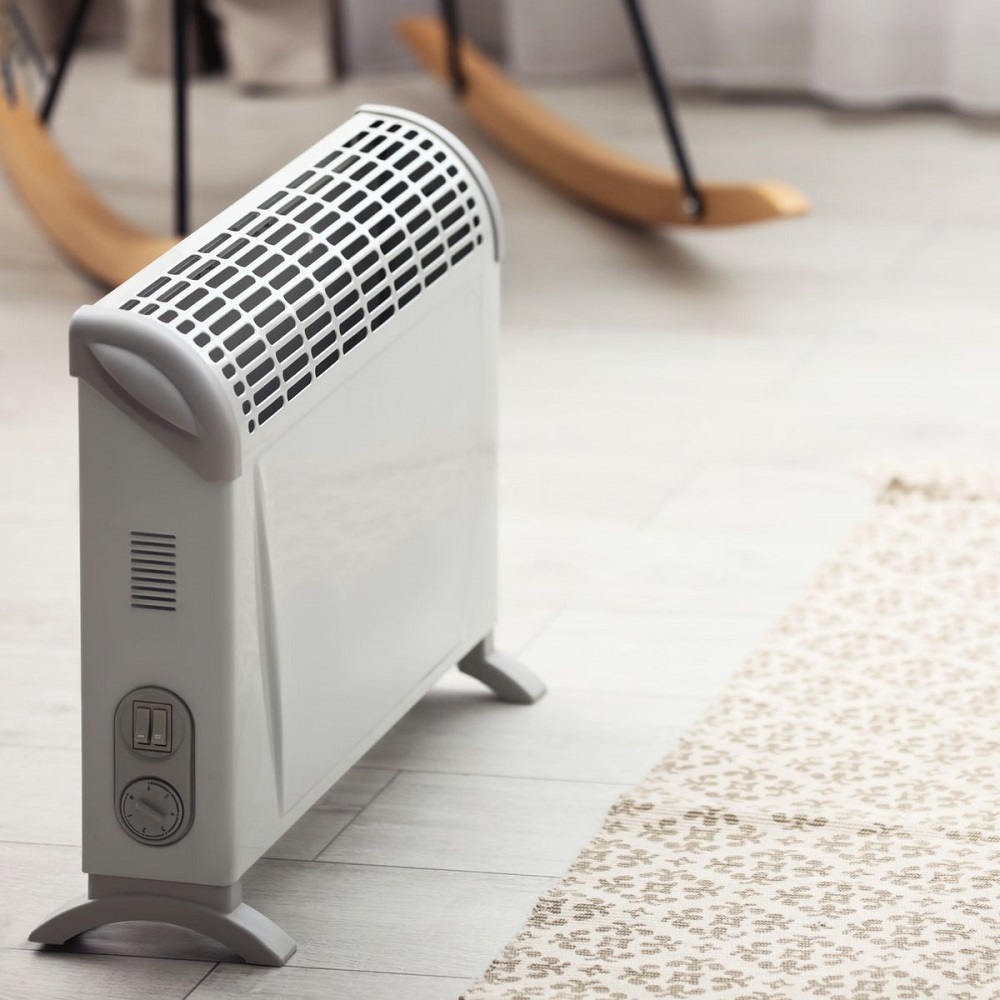
Heat Spread in Electric Heaters
Electric heaters provide focused and quick heat. They are effective at warming smaller areas rapidly, making them suitable for short-term use in specific spots. However, maintaining even heat distribution in larger rooms can be challenging.
Electric heaters often result in uneven heating. You’ll feel hotter close to the heater and cooler farther away. This can be less comfortable in larger spaces where consistent warmth is needed throughout the room.
Safety Features
Safety in Oil Heaters
Oil heaters are generally safe to use. They are designed to prevent overheating, and the surface of the heater doesn’t get as hot as that of an electric heater, reducing the risk of burns. Modern oil heaters come with various safety features, including tip-over protection and automatic shut-off.
Because the heating element is enclosed, there is a lower risk of fire compared to some electric heaters. This makes oil heaters a safer option for households with children and pets.
Safety in Electric Heaters
Electric heaters have made significant strides in safety. Many come with safety features like tip-over switches, overheat protection, and cool-touch exteriors. However, the exposed heating elements in some models can pose a risk of burns or fire if not used carefully.
Regular maintenance and cautious placement are crucial to ensure safety. Keep electric heaters away from flammable materials and ensure they are positioned where they can’t be easily knocked over.
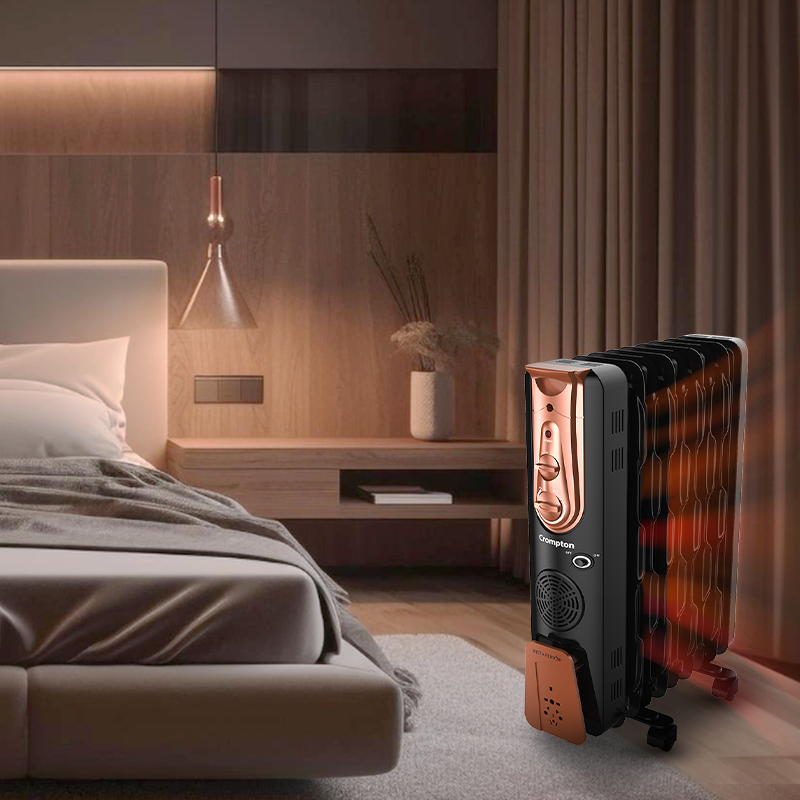
Cost Analysis
Initial and Running Costs of Oil Heaters
Oil heaters tend to have a higher initial cost compared to basic electric heaters. However, their energy efficiency can result in lower running costs over time. Since they provide consistent heat without continuous power usage, they can be more economical in the long term.
The minimal maintenance costs also add to their cost-effectiveness. Despite the initial investment, the overall cost of using oil heaters can be lower due to their efficient energy use.
Initial and Running Costs of Electric Heaters
Electric heaters are generally less expensive upfront. Their lower initial cost makes them an attractive option for those on a tight budget. However, the higher energy consumption can result in increased electricity bills, especially with prolonged use.
Maintenance can also add to the cost if professional servicing is needed. In the long run, electric heaters might end up costing more due to higher energy usage and maintenance requirements.
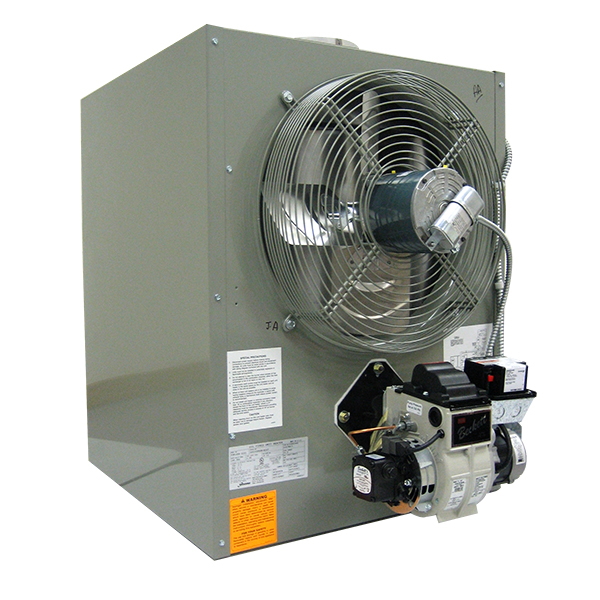
Environmental Impact
Eco-Friendliness of Oil Heaters
Oil heaters are relatively eco-friendly. They convert most of the electrical energy into heat, resulting in minimal energy waste. Additionally, they don’t emit harmful gases, making them a clean source of heat.
The oil used in these heaters is usually sealed within the unit and lasts the lifetime of the heater, reducing waste. This makes oil heaters a sustainable option for environmentally conscious users.
Eco-Friendliness of Electric Heaters
Electric heaters have a higher environmental impact due to their energy consumption. The efficiency of electricity generation and transmission also affects their overall eco-friendliness. However, if powered by renewable energy sources, their environmental footprint can be reduced.
Choosing energy-efficient models and using them wisely can help mitigate some of their environmental impact. Consider the source of your electricity to gauge the true environmental cost.
Real-World Applications
Best Uses for Oil Heaters
Oil heaters are ideal for situations where consistent, long-lasting heat is required. They are well-suited for bedrooms, living rooms, and offices where maintaining a stable temperature over a long period is essential.
Because of their quiet operation and even heat distribution, they are also excellent in homes with small children or pets. The safety features and minimal maintenance make them a practical choice for family homes.
Best Uses for Electric Heaters
Electric heaters are best for quick, temporary heating needs. They are suitable for small rooms, bathrooms, or for providing additional warmth in a particular area. Their portability and rapid heat generation make them useful for spot heating.
They are also good for people who need immediate warmth and don’t plan to use the heater for long periods. Electric heaters are versatile and convenient, making them a popular choice for many applications.
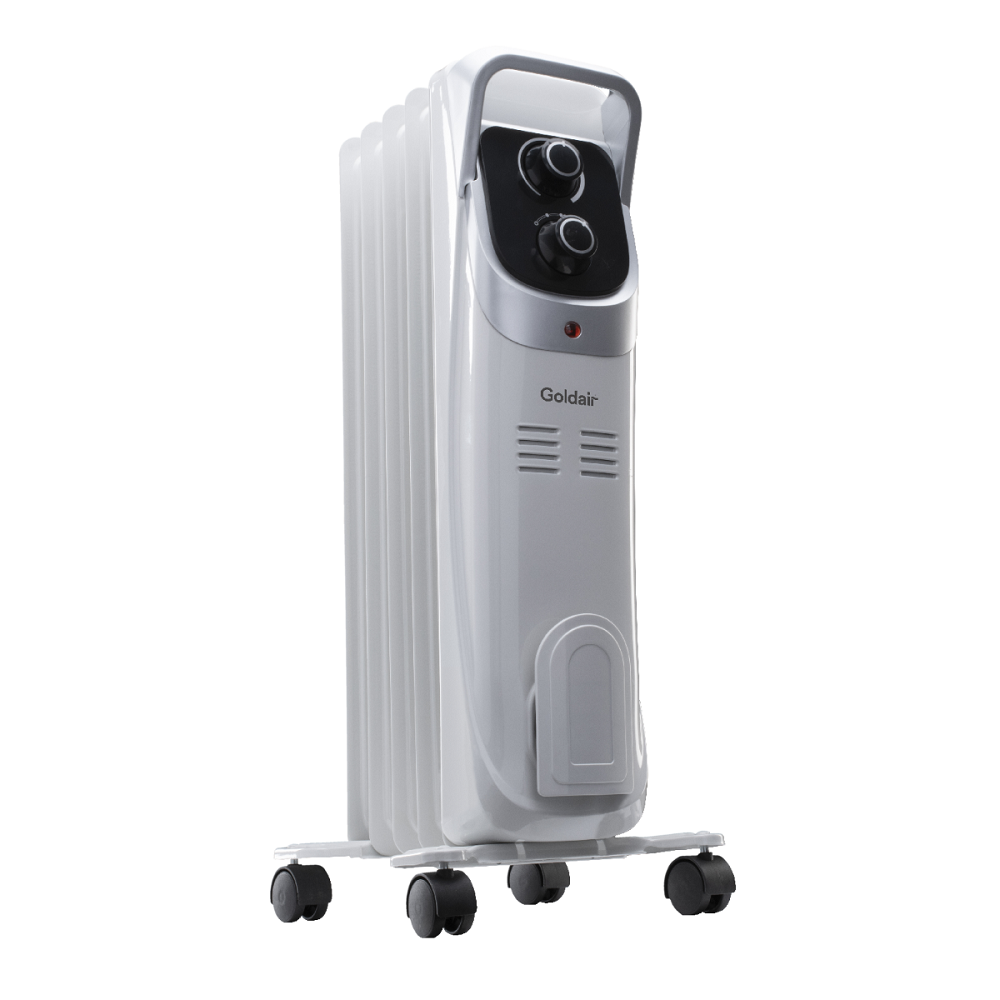
Versatility and Convenience
Adaptability of Oil Heaters
Oil heaters are highly adaptable for various environments. Their steady heat output and portability make them suitable for different room sizes and types. Whether you need to warm up a large living room or a cozy bedroom, an oil heater can effectively maintain the desired temperature with minimal fuss.
Their quiet operation is another notable advantage. Unlike some electric heaters that use fans, oil heaters provide silent warmth. This feature makes them ideal for use in bedrooms, offices, and study areas where a quiet environment is crucial.
Versatility of Electric Heaters
Electric heaters excel in versatility. They come in various forms, such as tower, baseboard, and ceramic heaters, each serving different needs. This variety allows you to choose the model that best matches your space and heating requirements. For instance, a small space heater can easily fit under a desk, while a wall-mounted unit can efficiently heat an entire room.
Additionally, many electric heaters come with adjustable thermostat settings and timers. These features offer greater control over heat levels and usage times, adding to the convenience and flexibility of electric heating solutions.
Conclusion
Choosing between an oil heater vs electric heater depends on your specific needs and circumstances. Oil heaters offer energy efficiency, consistent heat distribution, and lower long-term costs, making them ideal for family homes and prolonged use. On the other hand, electric heaters provide quick and focused heat, are versatile, and have a lower initial cost, making them suitable for short-term and temporary heating needs.
By considering factors like energy efficiency, installation, heat distribution, safety, cost, and environmental impact, you can select the oil heater vs electric heater solution that best fits your lifestyle and requirements. Both types of heaters have their merits, and understanding these will help you make an informed and efficient choice.


